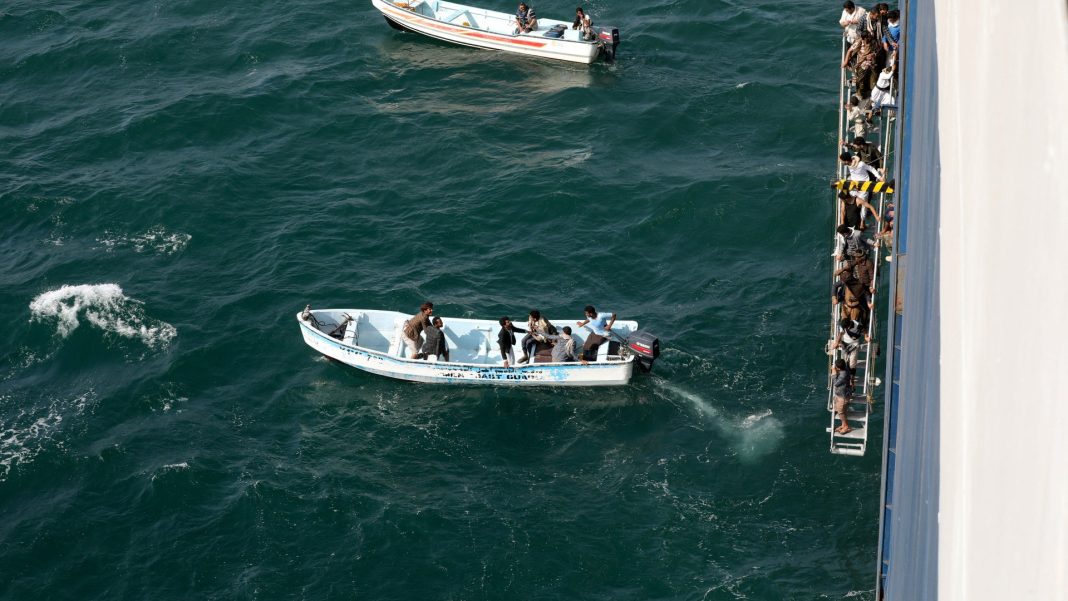Mohammed Abdulsalam, the Houthi spokesman, made the comment in an interview with Reuters.
“What the Yemeni people did, in the beginning, was to target Israeli ships heading to Israel without causing any human or even significant material losses, just preventing ships from passing as a natural right,” Abdulsalam said.
“We imposed rules of engagement in which not a single drop of blood was shed or major material losses,” he continued, adding, “It represented pressure on Israel only, it did not represent pressure on any country in the world.”
The Yemeni official said the US intervention has further escalated the situation and that the movement will continue to respond to the US attacks.
“Now, when America joined in and escalated the situation further, there is no doubt that Yemen will respond.”
“The strikes on Yemen, from our perspective, are a blatant violation of Yemen’s sovereignty and a serious aggression against the Yemeni people,” Abdulsalam stated.
Yemen, he added, does not intend to expand the attacks on shipping in and around the Red Sea beyond their stated aim of blockading Israel and retaliating against the United States and Britain for airstrikes.
“We do not want the conflict to expand in the region, and we are still working on non-escalation, but the decision is up to the Americans, as long as they continue to attack.”
The Yemeni official stated the decision to target Israeli-linked ships was a response to popular demands. “It came after great popular pressure not only in Yemen but in the region, demanding that the governments of the region and their leaders take a position towards the Palestinians facing a genocidal campaign.”
Referring to the Persian Gulf’s Arab countries, the Yemeni official said Ansarullah calls on them “to reject the militarization of the Red Sea or the presence of military forces inside the region.”
Abdulsalam added the Yemenis have made their own decisions in the conflict and do not take orders from Tehran, though they maintain a close relationship.
The Houthis have carried out a string of drone and missile attacks on ships in the Red Sea region in recent months, following the outbreak of the war in Gaza. They have vowed to continue targeting any Israel-linked vessels until the blockade of the Palestinian enclave is lifted and the hostilities are stopped.
In response, the US has formed a military coalition against Yemeni forces in the Red Sea and endangered maritime navigation in the strategic waterway.
The increased risks faced by ships in the Red Sea have forced the world’s biggest freight firms to avoid the Suez Canal and sent insurance costs soaring. Instead of Suez – the quickest cargo route from Asia to Europe – many vessels are now diverting round the Cape of Good Hope, incurring higher expenses on fuel, maintenance and wages.
Container freight rates for key global trade routes have also surged after the US and UK launched airstrikes on targets in Yemen with the stated goal of protecting maritime commerce in the Red Sea and the Bab-el-Mandeb straits, the world’s busiest routes.
